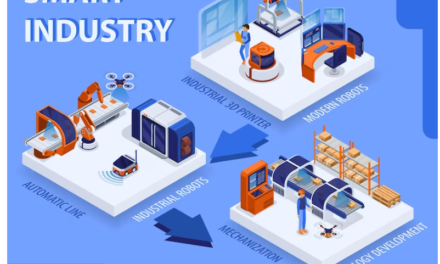Process
automation is automating a business process to decrease manual intervention. It
involves using artificial intelligence or robotic process automation tools to
automate manual tasks. Automation typically results in a significant reduction
in processing time, a higher degree of process accuracy and efficiency, and the
elimination of human error. Process automation can be used for many
applications, from business workflow to customer service automation.
In
this blog, we will talk about intelligent process automation: a new technology
that improves business processes using machine learning and artificial
intelligence to automate decision-making. We will tell you what it is, how it
differs from robotic process automation, and why you should use intelligent
process automation instead of robotic process automation.
What is Intelligent Process Automation?
Thanks
to digital process automation, businesses can process various tasks using a
machine instead of a human. The benefits of intelligent process automation
(IPA) are numerous and wide-ranging. It can help businesses improve business
efficiency and accuracy by automating repetitive processes using innovative
artificial intelligence (AI).
Furthermore,
IPA can help organizations save on operational costs by automating tasks that
require repetitive actions. Additionally, automation solutions can help a
business improve customer experience by quickening customer interactions with
intelligent automation.
Business
owners should consider using intelligent process automation to achieve the best
results.
What Technologies Makeup Intelligent Process
Automation?
IPA
technologies include machine learning, artificial intelligence, robotic process
automation (RPA), and various other technologies that monitor industrial,
commercial, and institutional processes. Some of these new technologies use
sensors to sense the environment and make decisions based on data from those
sensors.
Intelligent
process automation aims to automate tasks performed manually, improving
efficiency and safety. These technologies have several benefits for businesses
of all sizes, including reduced operating costs, increased production rates,
and improved quality control.
In
addition to providing a competitive edge, intelligent process automation can
generate valuable insights for business leaders looking to optimize processes,
reduce manufacturing bottlenecks, and improve performance. Overall, intelligent
process automation is a vital technology for businesses seeking to succeed in
the 21st century.
Intelligent Process Automation (IPA) vs. Robotic
Process Automation (RPA)
In a
nutshell, intelligent process automation (IPA) refers to a category of process
automation using computer-aided reasoning and artificial intelligence to decide
what actions to take to achieve specific goals.
Robotic
process automation (RPA) is an IPA that uses robots instead of humans to
perform tasks. In a nutshell, RPA is a process automation technology that automates
routine business processes using robotics. It’s most commonly used in large,
complex organizations where many tasks can be automated.
There
are many benefits to using intelligent process automation, including improved
efficiency, speed, and accuracy. IPA is the answer if you’re looking for a way
to streamline your business processes and automate repetitive tasks or
time-consuming tasks without hiring extra employees.
What are the Benefits of Intelligent Process
Automation?
In a
nutshell, intelligent automation is a workflow automation process that uses
artificial intelligence to enhance business efficiency and effectiveness. It
helps businesses process digital data faster and more accurately with minimal
human intervention. With intelligent process automation, companies can save
time and money by automating tasks, processes, and business functions. Other
benefits of process automationare that it also reduces the risk of errors,
making it a win-win for the business and customer journey. The benefits of process
automation are endless. So why not start exploring them today?
Intelligent Process Automation Market
According
to a market research firm, the intelligent process automation market is
projected to reach a valuation of $8.18 billion by 2025.
IPA
solutions can automate various business processes, from customer service to
data entry. These solutions use machine learning and artificial intelligence to
automate tasks that require human intervention. This automation frees up time
and resources for organizations, enabling them to focus on their core business
and improve efficiency and accuracy.
There
are several different types of IPA solutions available, including business
process automation (BPA), application integration automation (AIA), and
enterprise resource planning (ERP) solutions. Each provides unique business
benefits and comes with features, benefits, and drawbacks. It’s essential for
organizations to carefully analyze their requirements and select the best
solution for their unique needs.
Benefits Of Process Automation
It’s
no surprise that digital process automation has become a vital part of modern
business operations. These new technologies offer a wide range of benefits,
including improved efficiency and accuracy, greater security, and the ability
to customize automated processes to meet the specific needs of your business.
You
can remotely manage automated processes with intelligent process automation,
making them more secure and time-efficient. Additionally, intelligent process
automation can help you streamline business operations and reduce costs,
including the workforce.
Finally,
intelligent process automation allows you to customize automated processes to
meet the specific needs of your business. Intelligent process automation can
improve communication and collaboration within your business, helping it
operate more efficiently and effectively.
Conclusion
The
process automation process involves a series of methods, such as data
processing and business process automation. Intelligent process automation can
be defined as an automated process using artificial intelligence (AI)
technologies to improve business efficiency and reduce human intervention.
Thus,
intelligent process automation technologies can help organizations improve
performance and workflow efficiency.
Thanks
for reading.






